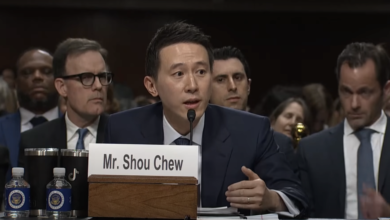The Democratic People’s Republic of Korea released a declaration on its nuclear programs June 26, revealing details on its arms-grade plutonium enrichment programs and handing over 18,000 pages of operational records. In a symbolic gesture, North Korea also demolished a cooling tower at its Yongbyon nuclear facility the same day before the international media.
|
In exchange for North Korea’s declaration, the Bush administration removed North Korea from its list of state sponsors of terrorism. Following a 45-day period for verification of compliance, North Korea may be free from sanctions imposed by the Trading with the Enemy Act passed under President Truman in 1950. Any sanctions rescinded can be immediately reinstated if North Korea fails to meet the terms of the agreement—or Washington’s interpretation of it.
Lifting sanctions from the Trading with the Enemy Act will still leave 19 U.S. State Department sanctions in place. Many restrictions on U.S. companies doing business in the country will also remain. At a June 26 press conference, Bush said, “North Korea will remain one of the most heavily sanctioned nations in the world.” (U.S. News & World Report, June 26)
Whether the Trading with the Enemy Act sanctions will be lifted remains to be seen, however. Washington is already falling back on its usual bully tactics aimed at forcing unlimited and unilateral concessions from its targets while granting them little or nothing in exchange.
U.S. officials have begun stalling on even the modest promises they have made, stubbornly insisting that North Korea provide additional information regarding alleged uranium enrichment and proliferation activities. The accusations are a key sticking point for Secretary of State Condoleezza Rice, despite the North Korean government repeatedly rejecting the charges.
U.S. belligerence, broken promises escalate conflict
In the early 1990s under President Clinton, the U.S. military nearly intervened in North Korea over the country’s declared intentions to develop nuclear power. The conflict eventually de-escalated after the two countries signed the 1994 General Framework Agreement.
Under the agreement, the U.S. government agreed to provide fuel and other aid in exchange for North Korea disabling and replacing their “heavy water” nuclear reactors with “light water” reactors. But it took nearly eight years for Washington to take even the first steps in meeting its obligations under the agreement. It was clear that U.S. officials were stalling in anticipation that the government of North Korea would be toppled in a similar manner to the counter-revolutionary ousting of the governments in Eastern Europe between 1988 and 1991.
In 2002, North Korea pulled out of the General Framework Agreement after being accused by the Bush administration of possessing a secret uranium enrichment program. A year later, the six-party talks began in August in Beijing, China. In September 2005, Pyongyang again agreed to stop its nuclear programs.
A New York Times editorial published on Nov. 5, 2006, stated, “If President Bush is serious about trying to negotiate his way out of the nightmare of a nuclear-armed North Korea, he needs to end debate within his administration and empower Secretary of State Condoleezza Rice to cut the best deal she can. She should start with a clear pledge that the United States will not try to overthrow the North Korean government if it gives up its weapons program.”
Nuclear test turns the tide
Frustrated by endless threats and financial sanctions, North Korea carried out its first nuclear test Oct. 9, 2006. This fundamentally altered the balance of forces, giving North Korea much-needed leverage to negotiate an end to hostilities and normalization of relations. A month later, the two countries agreed to return to the six-party talks.
Paik Hak-soon, a North Korea expert at the Sejong Institute in Seoul, South Korea, said, “That is the only way for North Korea to survive. North Korea wanted the United States to come to the negotiating table, and since the United States did not want to come voluntarily, North Korea used the nuclear card.” (New York Times, June 28)
In steps that led up to the recent declaration, North Korea yet again agreed to end its nuclear activities in exchange for aid in February 2007. In July of that year, it shut down its Yongbyon reactor and allowed International Atomic Energy Agency inspectors into the country.
The Bush administration’s response to North Korea’s declaration has resulted in an internal dispute within the U.S. ruling class. Critics on one side say that the Bush administration could have reached a similar deal years ago and potentially stopped North Korea from acquiring nuclear weapons. Those on the other side criticize the administration for what it calls a “giveaway” to Pyongyang.
Carlos Pascual, Brookings Institution director of foreign policy, said, “That by opting for terminating our engagement, we opened the door to North Korea’s becoming a nuclear power.” On the other hand, John Bolton, former U.S. ambassador to the United Nations, said: “I think Bush believes what Condi is telling him, that they’re going to persuade the North to give up its nuclear weapons, and I don’t think that’s going to happen. I think we’ve been taken to the cleaners.” (New York Times, June 27)
Regime change or bust
Despite the momentary factional dispute, the U.S. ruling class unanimously agrees North Korea should not have the right to develop freely and independently of Washington’s dictates. The overthrow of North Korea’s socialist government has been the goal of the U.S. government—Democratic and Republican administrations alike—since 1945. Now that valuable information on North Korea’s nuclear program has been obtained, the allegations of uranium enrichment and nuclear technology proliferation may be used as an excuse to keep all sanctions in place and reinstate North Korea’s status as a state sponsor of terrorism.
The United States is the only country in history to ever use nuclear weapons and has larger stockpiles than any other country on the planet. North Korea, on the other hand, poses no military threat to the United States or the world. Its nuclear program has been, at best, a precious bargaining chip for deterring aggression from a bellicose imperialist government—a bargaining chip that Iraq did not have.
President Bush called Iraq, Iran, and North Korea the “axis of evil” in his 2002 State of the Union Address. The U.S. invasion of Iraq in 2003 took place only after the Iraqi government had dismantled large sections of its conventional defense capabilities and when U.S. military planners knew that Iraq did not have a nuclear weapons program. It is still an open question as to whether or not Iran will be attacked by Washington or its proxies. The U.S. government and media continue to allege that Iran has a secret nuclear weapons program, despite Iran’s cooperation with the IAEA and ample evidence showing that its nuclear program is strictly for energy production.
Progressives and revolutionaries must soundly reject Washington’s demonization campaign against North Korea and demand that all sanctions be lifted and relations be normalized. Progressive people everywhere want to see an outright ban on nuclear weapons, but the right of North Koreans to possess nuclear weapons must be defended as long as the threat of imperialist intervention looms. Hands off North Korea!






